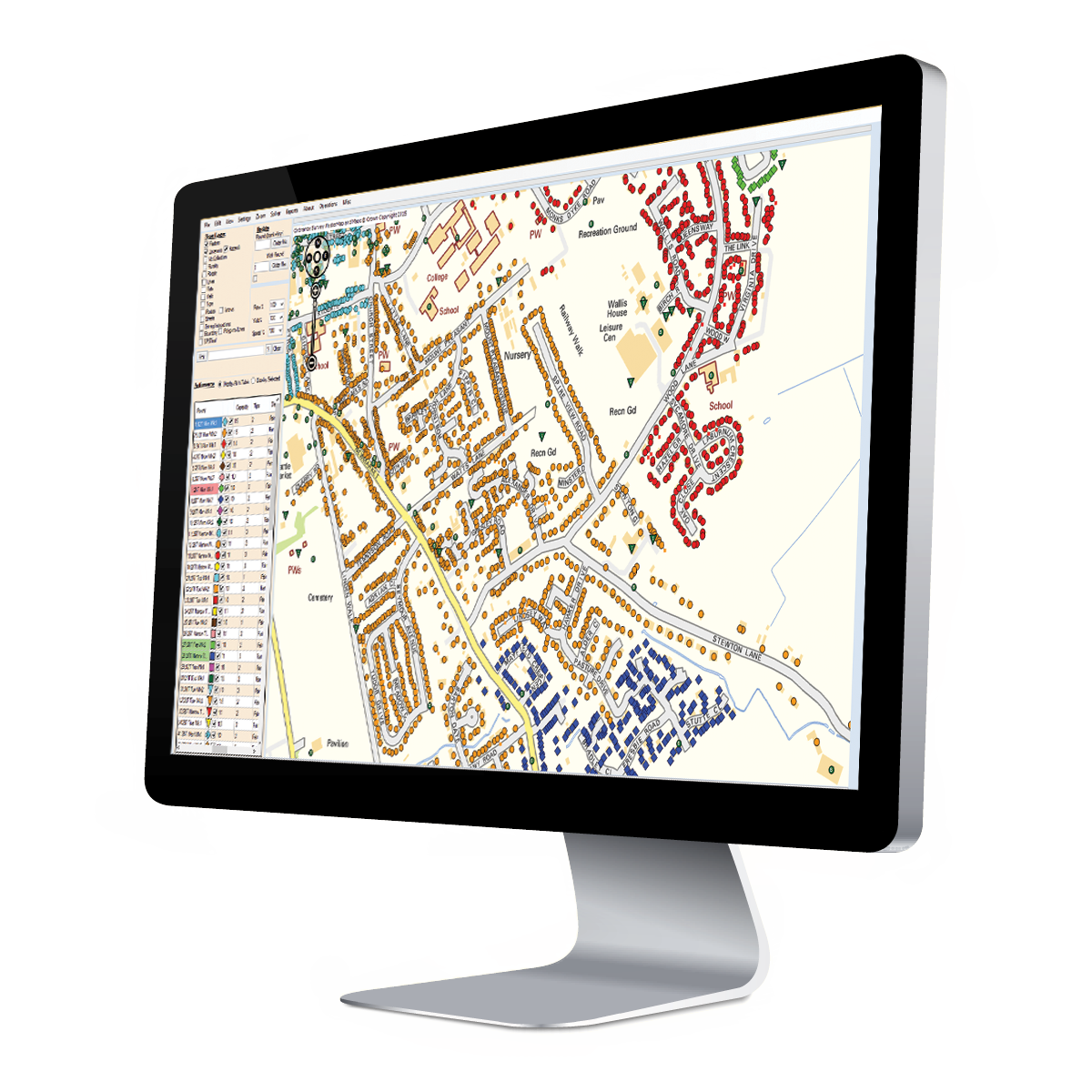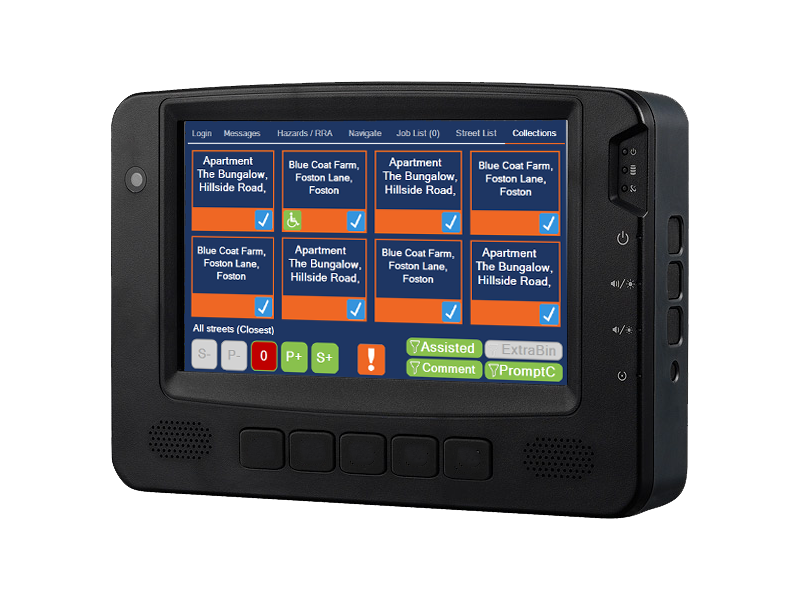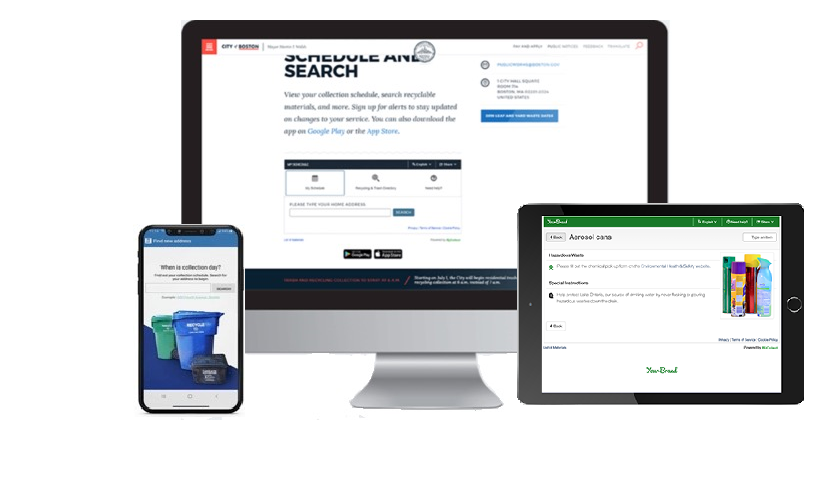
The fastest route to reach net zero emission targets is digital
December 2021
The UK waste management industry has a critical part to play in reducing the country’s carbon footprint and reaching the net zero emissions target by 2050.
In order to support the sector in making the necessary changes to achieve these goals more efficiently and more economically, we've summarised below some of the smart ways digital technology can help councils to reduce their carbon footprint, vehicle emissions, waste to landfill and incineration.
1. Use route optimisation software for greater savings, speed and efficiency
Route optimisation software supports a more efficient waste collection route planning process as it reduces the time taken to manually change rounds and implement more efficient routes.

By using digital route optimisation software councils can save an average 15% on costs and this financial return can then be reinvested into longer term green initiatives like converting the fleet to greener alternatives.
The Environmental Services Association (ESA) has a target for 2030 where only zero emissions collection vehicles can be purchased. Petrol and diesel vehicles in fleets will be phased out entirely by 2040. All vehicle and onsite fuel will be switched to biofuel and zero emission sources by 2040.
Converting a waste collection fleet takes careful planning to ensure service delivery quality. Digital route optimisation software can support waste management teams in this, providing the ongoing flexibility to regularly review and revise collection routes, taking account of changes in type of fleet vehicles, size and capacity. Sample models can be prepared digitally to plan for change, ensuring service delivery levels will be met long term, whilst achieving environmental goals.
2. Instantaneous communications between back office and in-cab crews saves miles

A digital In-Cab solution connecting back office and in-cab crews provides instantaneous communications to ensure that costly one off bin collection scenarios – like going back to collect a missed bin or the issues associated with non-collection of a contaminated bin – are minimised or resolved as efficiently as possible.
This helps because the nearest crew can be notified of changes immediately and the problem dealt with quickly, efficiently and without unnecessary miles or a costly return visit. In-cab technology dramatically improves customer service by providing residents with up to the minute round information, reducing case resolution times.
3. Empower residents to recycle right to reduce contamination, landfill and incinerated waste
Rising greenhouse gas emissions from the incineration of waste and stagnating recycling rates will stop the UK reaching net zero by 2050, according to analysis presented to government by the National Infrastructure Commission (NIC). To achieve a recycling target of 65% by 2035, which the Government has signed up to in its Resources and Waste Strategy, councils need to do more to engage with residents and encourage better recycling habits.
Recycling confusion at the kerbside contributes to contamination, landfill and incineration. Different councils use different approaches to manage recycling in the UK but, by simplifying their rules on the correct disposal of items, and then educating residents to recycle better, the situation could still be turned around.

If UK councils adopted a more consistent approach to recycling education, by adding digital recycling communication apps directly accessed via their website, to engage with and educate residents then they would soon see an increase in recycling rates and reduced landfill and incineration.
Data collated from digital recycling communications apps can also help councils to pinpoint repeated waste contamination issues, both geographically and by item, and implement targeted communications programmes to solve the problem long term.
How Webaspx Smart Waste Management Solutions help

Webaspx provides proven waste management digital software solutions to over 200 UK councils to support them in achieving their operational, financial and sustainability goals and, specifically, to achieve their target of net-zero faster, more economically and more efficiently.
All the digital solutions provide the council waste management teams with detailed analytics to help them to plan then quantify where they have been successful in meeting their carbon reduction and cost saving targets, and to identify and implement further solutions, where additional changes would be beneficial.
Click on the link below to find out more about Webaspx digital waste management software solutions which support carbon reduction in the waste and environmental services sector.
References:
https://www.edie.net/news/5/UK-s-waste-management-sector-targets-net-zero-emissions-through--10bn-infrastructure-overhaul/
https://www.circularonline.co.uk/news/study-to-highlight-link-between-increased-recycling-and-co2-emissions-reduction/
https://www.theguardian.com/environment/2021/nov/15/greenhouse-gases-waste-and-recycling-rates-could-stop-uk-net-zero-goal.
About Webaspx
Webaspx, a Routeware Global Company, is the leading route optimisation software supplier focused on the waste and fleet management markets. With offices in the US and the UK, the company provides market-leading cloud and mobile solutions to an established customer base of public and private sector companies.
This site uses cookies that enable us to make improvements, provide relevant content, and for analytics purposes. For more details, see our Cookie Policy. By clicking Accept, you consent to our use of cookies.